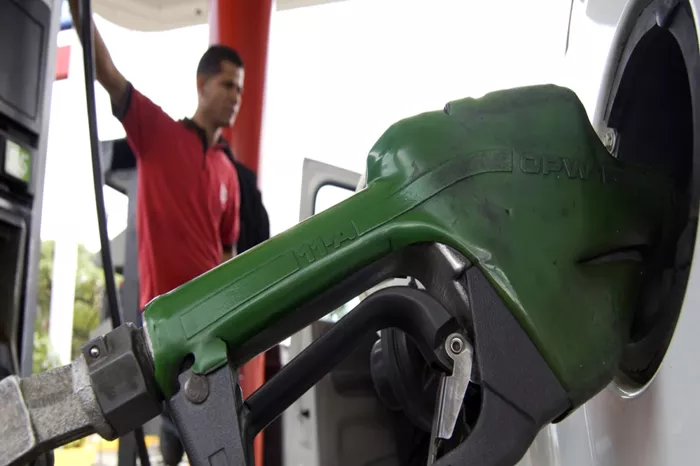Gasoline prices vary widely across the globe due to factors such as local taxes, subsidies, crude oil prices, and government regulations. While some countries experience high fuel costs that impact consumers and businesses, others benefit from lower prices at the pump. In this article, we explore the top 10 countries with the cheapest gasoline prices, highlighting the factors contributing to their affordability.
1. Venezuela
Subsidized Fuel Prices
Venezuela consistently ranks as having the world’s lowest gasoline prices due to heavy government subsidies. The country’s vast oil reserves allow the government to heavily subsidize gasoline, making it extremely affordable for consumers. Venezuelans pay a nominal fee at the pump, with prices significantly below international market rates.
Economic and Political Considerations
The economic and political situation in Venezuela has led to a unique scenario where gasoline remains highly subsidized despite broader economic challenges. The government’s control over oil resources plays a critical role in maintaining these low prices for consumers.
2. Iran
Government Subsidies
Iran, as a major oil producer, also benefits from substantial government subsidies on gasoline. The Iranian government heavily subsidizes fuel prices to support domestic consumption and mitigate the impact of global oil price fluctuations on consumers.
Economic Impact
Subsidized gasoline prices in Iran have significant economic implications, influencing inflation rates, government budget allocations, and energy sector investments. These subsidies are a key component of Iran’s economic policy, aimed at supporting consumer purchasing power and industrial competitiveness.
3. Sudan
Government Regulation
Sudan maintains relatively low gasoline prices through government regulation and subsidies. The country’s oil production capacity allows for domestic supply to meet local demand, contributing to stable and affordable fuel prices for Sudanese consumers.
Socioeconomic Factors
Affordable gasoline prices in Sudan contribute to lower transportation costs, benefiting households and businesses across the country. Government policies aim to balance fuel affordability with fiscal sustainability and economic development goals.
4. Kuwait
Oil Abundance
Kuwait, as a major oil-producing nation, benefits from abundant oil reserves that support low gasoline prices for consumers. The government leverages its oil wealth to provide subsidized fuel prices, ensuring affordability for residents and businesses.
Economic Policy
Gasoline subsidies in Kuwait are part of broader economic policies aimed at supporting economic growth, maintaining social stability, and enhancing living standards. The country’s oil-dependent economy relies on strategic energy pricing to stimulate domestic consumption and industrial activities.
5. Algeria
State Subsidies
Algeria’s government implements fuel subsidies to maintain affordable gasoline prices for its citizens. The country’s oil and gas resources enable it to subsidize fuel costs, ensuring accessibility and affordability for consumers despite global oil price fluctuations.
Economic Management
Fuel subsidies in Algeria play a crucial role in managing inflation, supporting domestic industries, and promoting economic stability. The government adjusts subsidy policies in response to economic conditions and global energy market dynamics to mitigate financial burdens on households.
See also: 5 Reasons Why Costco Fuel Is So Cheap
6. Egypt
Subsidy Programs
Egypt employs fuel subsidy programs to stabilize gasoline prices and support consumer affordability. The government manages fuel subsidies as part of broader economic reforms aimed at enhancing economic competitiveness and reducing household expenses.
Fiscal and Social Impact
Affordable gasoline prices in Egypt contribute to lower transportation costs, benefiting households and businesses across the country. The government balances subsidy expenditures with fiscal sustainability goals to ensure long-term economic resilience.
7. Qatar
Strategic Pricing
Qatar strategically manages gasoline prices to reflect its status as a major oil and gas exporter. The government adjusts fuel prices based on global market conditions while ensuring affordability through targeted subsidies and economic policies.
Economic Strategy
Gasoline affordability in Qatar supports domestic consumption patterns, enhances consumer purchasing power, and stimulates economic growth. The government’s energy pricing strategies align with broader economic diversification efforts and sustainability initiatives.
8. Kuwait
Oil Wealth Utilization
Kuwait utilizes its abundant oil reserves to maintain low gasoline prices through subsidies and government intervention. The country’s energy policy prioritizes domestic affordability while managing fiscal responsibilities and economic development goals.
Economic Stability
Affordable gasoline prices in Kuwait contribute to economic stability, supporting consumer spending and industrial activities. The government’s energy pricing strategies aim to balance economic competitiveness with sustainable resource management.
9. Nigeria
Domestic Production
Nigeria’s significant oil production capacity allows the government to regulate gasoline prices through subsidies and market interventions. Affordable fuel prices support consumer purchasing power and economic activities across various sectors.
Socioeconomic Impact
Accessible gasoline prices in Nigeria contribute to lower transportation costs and foster economic growth. Government policies on energy pricing seek to enhance social welfare, mitigate inflationary pressures, and promote industrial development.
10. Saudi Arabia
Energy Subsidies
Saudi Arabia implements energy subsidies to maintain low gasoline prices for its citizens. The country’s oil wealth enables it to subsidize fuel costs while supporting domestic consumption patterns and economic stability.
Economic Policy
Affordable gasoline prices in Saudi Arabia are integral to the country’s economic strategy, promoting consumer affordability and business competitiveness. The government’s energy pricing policies align with broader economic diversification initiatives and fiscal sustainability goals.
Conclusion
The countries with the cheapest gasoline prices leverage various factors such as oil abundance, government subsidies, and strategic energy policies to ensure affordability for consumers. These policies play a crucial role in supporting economic development, enhancing living standards, and mitigating the impact of global oil price fluctuations on domestic markets. As global energy dynamics evolve, these countries continue to adapt their energy policies to maintain stable and accessible gasoline prices for their populations.
Related topics:
Top 5 Cheapest Fuel In The World

